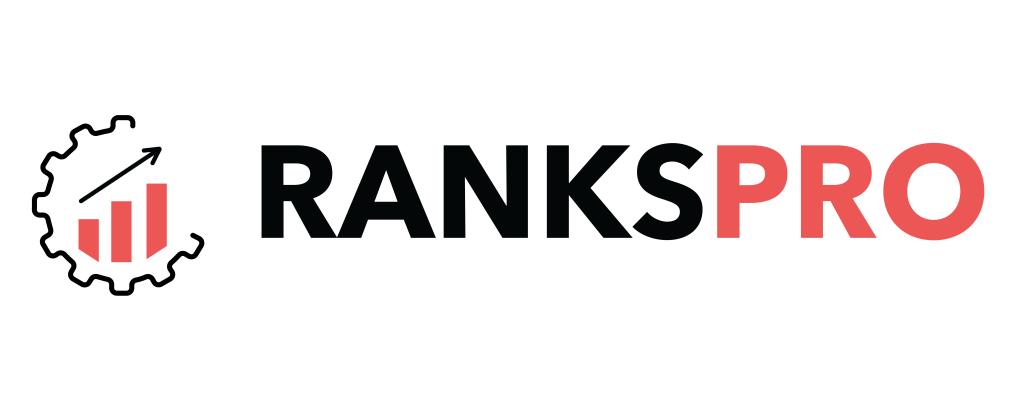1. Introduction
2. What are SEO metrics?
3. What are Key Performance Indicators (KPIs) in SEO?
4. Difference b/w SEO metrics and SEO KPIs
5. Crucial SEO metrics you should track
6. SEO KPIs to follow
7. How eSearch Logix utilize SEO metrics and KPIs?
Measuring the success of your SEO efforts is essential for making informed decisions and maximizing their impact. Whether it’s about tracking customer acquisition or analyzing monthly organic traffic, you need a clear understanding of key aspects involvedto know valuable insights from your analytical reports.
In this blog, we will talk about crucial SEO metrics and KPIs (Key performance indicators) that help to measure the impacts of your SEO strategies. From definition to their importance, you will find everything to know about measuring and tracking the progress of your campaigns.
Firstly, let’s begin with SEO metrics.
What are SEO Metrics?
SEO metrics are the vital data points that act as your compass, guiding you towards a well-optimized website. These metrics offer crucial SEO insights into your website’s performance, user behavior, and overall SEO health.

Here are the top reasons why SEO metrics are important:
- Identify Strengths and Weaknesses
- Measure Progress and ROI
- Stay Ahead of the Curve
By tracking and monitoring these metrics consistently, you gain a clear understanding of what’s working and what needs improvement. This allows you to make informed decisions and refine your SEO strategy for long-term success.
What are Key Performance Indicators (KPIs) in SEO?
While SEO metrics offer valuable data points about your website’s health, SEO KPIs (Key Performance Indicators) take things a step further. They act as the guiding lights in your SEO journey, providing specific, measurable insights to evaluate the effectiveness of your SEO strategy and achieve your business goals.
Defining effective SEO KPIs involves following the SMART methodology:
- Specific: Clearly define what you want to achieve. Instead of a vague goal like “improve organic traffic,” be specific, like “increase organic traffic by 20% in the next quarter.”
- Measurable: Ensure you can track and quantify your progress. This means selecting metrics that can be easily measured and monitored through analytics tools.
- Achievable: Set realistic goals that are challenging but attainable within your resources and timeframe.
- Relevant: Align your KPIs with your overall business goals and ensure they directly contribute to your desired outcomes.
- Time-bound: Set a specific timeframe for achieving your KPI targets. This creates a sense of urgency and helps you track your progress toward milestones.
By following these guidelines and leveraging the power of SEO KPIs, you can transform your SEO efforts from a data-gathering exercise into a strategic roadmap for achieving tangible business results.
Now that you know both – SEO metrics and KPIs, let’s understand what differs them from each other if they are both focused on measuring SEO success.
Difference b/w SEO metrics and SEO KPIs
SEO metrics provide the data, while SEO KPIs help you interpret that data and assess its impact on your overall goals. This understanding is crucial for making informed decisions and optimizing your SEO strategy for long-term success.
Let’s take an example:
Organic traffic is an SEO metric that is used to measure number of visitors coming on your website. Now, to measure how much visitors became your customers or converted into potential leads, we use a key performance indicator (KPI) called conversion rate.
Both SEO metrics and KPIs work consequently to reflect a clear picture of how your SEO campaigns is performing, depending on the goals you defined. Goals can be – increasing user acquisition, boost brand awareness, etc.
There are several SEO metrics and KPIs used to track and monitor the performance of your SEO strategies. Let’s first begin with SEO metrics.
Crucial SEO Metrics You Should Track
1. Organic Traffic
This metric measures the total number of visitors your website receives from search engines. It’s a good indicator of how well your website is ranking for relevant keywords and attracting organic visitors.

2. Keyword Rankings
This metric shows the position your website holds in search engine results pages (SERPs) for specific keywords. Tracking your rankings for relevant keywords helps you understand your visibility and identify areas for improvement.

3. Click-Through Rate (CTR)
This metric indicates the percentage of people who click on your website link in the search engine results pages. A high CTR suggests that your title tags and meta descriptions are compelling and effectively grab user attention.

4. Bounce Rate
This metric measures the percentage of visitors who leave your website after viewing only one page. A high bounce rate might indicate that your landing pages are not engaging or relevant to the user’s search intent.

5. Conversion Rate
This metric tracks the percentage of website visitors who complete a desired action, such as making a purchase, subscribing to a newsletter, or filling out a form. It’s vital for understanding the effectiveness of your website in driving valuable business outcomes.

6. Backlinks
These are links from other websites pointing to your website. High-quality backlinks from reputable websites act as a vote of confidence and can improve your website’s authority and ranking in search results.

7. Page Speed
This metric measure how quickly your website loads. A slow loading speed can negatively impact user experience and ranking, so keeping your website optimized for speed is crucial.

8. Mobile Friendliness
As a growing number of users access the internet through mobile devices, ensuring your website is mobile-friendly is essential. This metric indicates how well your website adapts and displays on different screen sizes.

9. User Engagement
Metrics like time spent on page and number of pages visited can offer insights into how engaged users are with your website content. This data helps you understand what content resonates with your audience and identify areas for improvement.

10. Brand Mentions
Tracking brand mentions online, including social media and other platforms, can help you gauge brand awareness and sentiment. This data can inform your SEO strategy by identifying relevant keywords and topics that your audience is interested in.

These key SEO metrics help you gain valuable insights into your website’s performance. Utilizing them can help you make data-driven decisions to optimize your SEO strategy, improve user experience, and drive online success.
Top SEO KPIs to Track
1. Organic Search Conversions
This KPI measures the percentage of organic website visitors who complete a desired action, such as making a purchase, signing up for a free trial, or downloading a white paper. It directly connects your SEO efforts to tangible business outcomes.
2. Organic Customer Acquisition Cost (CAC)
This KPI calculates the cost of acquiring a customer through organic search channels. By tracking this metric alongside organic conversions, you can assess the efficiency and ROI of your SEO strategy.
3. Return on Investment (ROI)
This KPI measures the overall financial benefit of your SEO efforts. It’s calculated by dividing the revenue generated from organic traffic by the total investment in your SEO strategy. Analyzing ROI allows you to understand the financial impact of your SEO efforts and justify its continued investment.
4. Time to Rank
This KPI tracks the average time it takes for your website to start ranking on the first page of search results for your target keywords. This data helps you understand the effectiveness of your SEO strategy and identify areas for optimization to accelerate ranking improvement.
5. Lead Generation
This KPI measures the number of leads generated through organic website traffic. It helps you assess the effectiveness of your website in attracting potential customers and driving lead generation, which is crucial for many businesses.
6. Customer Lifetime Value (CLV)
This KPI calculates the total revenue a customer acquired through organic search generates over their lifetime as a customer. Analyzing CLV alongside organic traffic and conversions helps you understand the long-term value of your SEO efforts.
7. Branded vs. Non-Branded Organic Traffic
This KPI compares the volume of organic traffic coming from searches containing your brand name (branded) versus those without (non-branded). Monitoring this helps gauge brand awareness and the effectiveness of your overall marketing strategy in driving organic visibility.
By focusing on these key KPIs, you can move beyond vanity metrics and gain a deeper understanding of how your SEO strategy impacts your business bottom line. Remember, the most valuable KPIs will be specific to your unique business goals and industry.
Ranks Pro Your Perfect Tool to Utilize SEO Metrics and KPIs
Tracking the right SEO metrics and KPIs is crucial for navigating your SEO journey effectively. By understanding the data behind your website’s performance, you can make informed decisions, optimize your strategy, and ultimately achieve your business goals.
This blog explored key SEO metrics and KPIs to track, empowering you to:
- Gain valuable insights into website traffic, user engagement, and ranking performance.
- Measure the effectiveness of your SEO efforts in driving business growth.
- Identify areas for improvement and optimize your strategy for long-term success.
However, our full-fledged SEO tool RanksPro.io can help you in tracking and analyzing these vital data points. You’ll gain a clear understanding of your SEO progress and make strategic decisions that propel your website to the top of search results.
RanksPro.io, your all-in-one SEO toolkit! It empowers you to:
- Uncover profitable keywords with in-depth keyword research.
- Analyze landing page performance and identify areas for improvement.
- Gain valuable insights from comprehensive backlink analysis.
- Track your keyword rankings and monitor progress over time.
- Perform comprehensive site audits to identify and fix technical SEO issues.
And much more!
By combining the knowledge gained from this blog with the power of RanksPro.io, you can unlock the full potential of your SEO strategy and achieve lasting online success.



